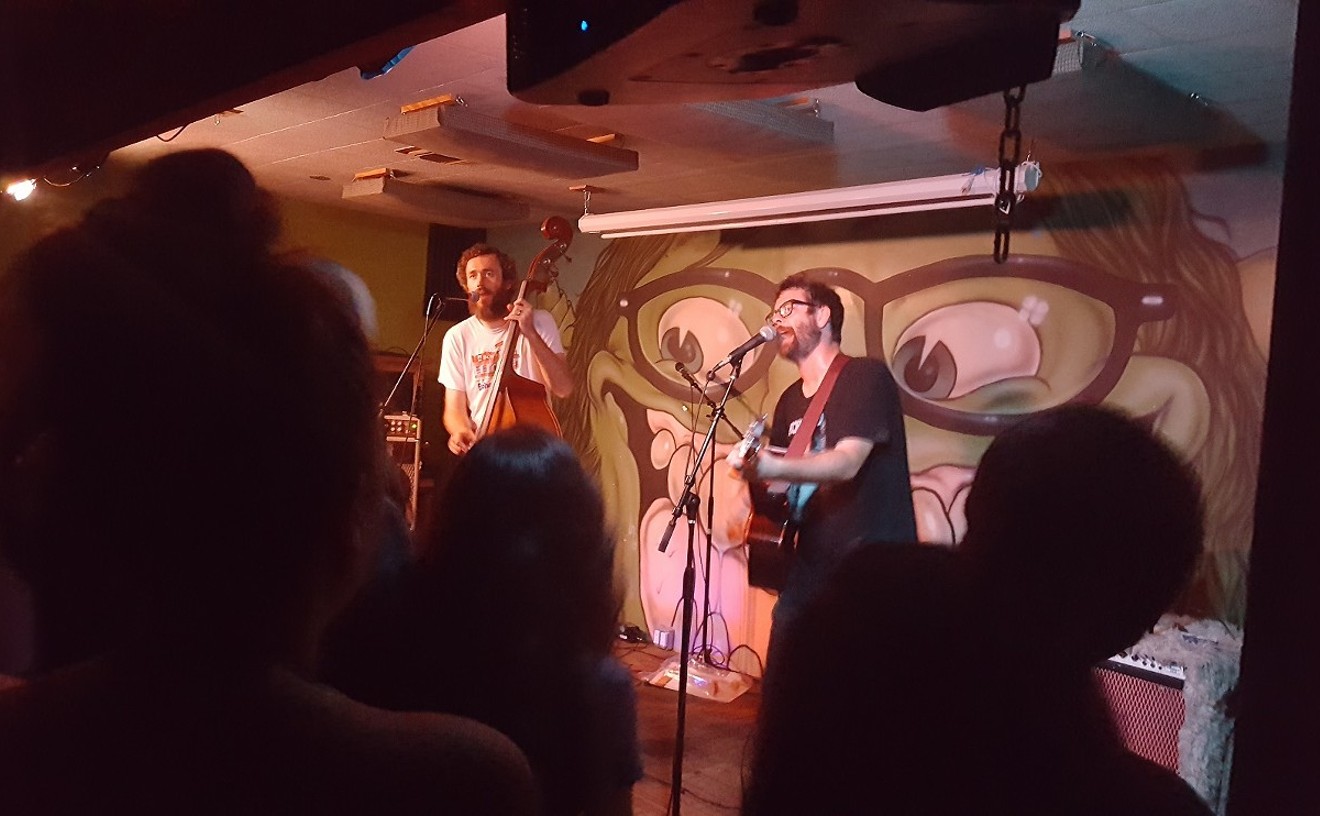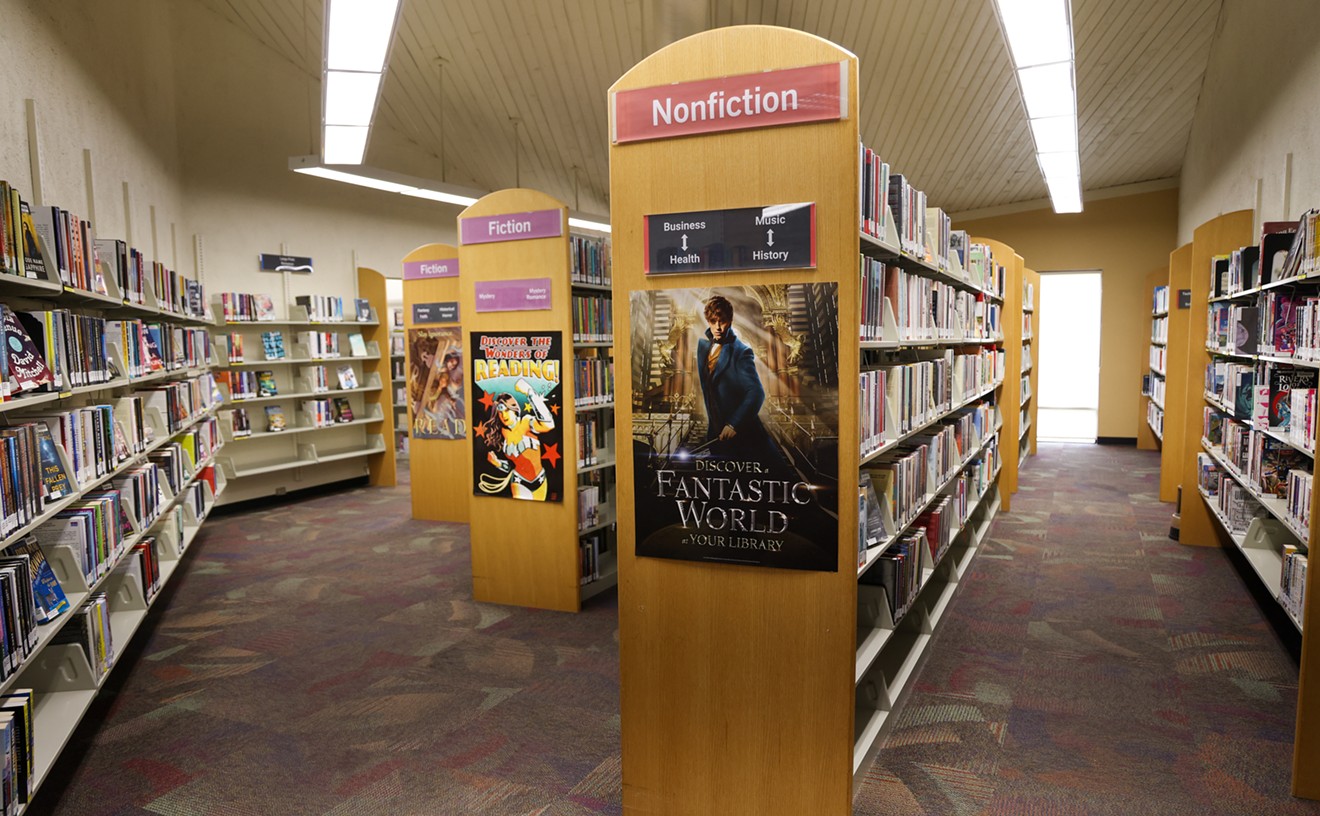If that didn't make you smile, you probably won't enjoy Ivan Menchell's The Cemetery Club, which opened this week to close out Arizona Jewish Theatre Company's sixth season. On the other hand, if you're of a certain age, this play may be just the thing to remind you how preferable old age is to the alternative.
Menchell's play arrived to a chilly critical reception on Broadway in 1990, following tryouts at the Yale Rep and the Cleveland Play House. But audiences seemed to adore what the critics had scorned, although not enough to justify more than an abbreviated run of 20 performances. Menchell adapted the script into a screenplay for a 1993 movie that starred Ellen Burstyn, Olympia Dukakis and Diane Ladd, which turned the Broadway flop into a Hollywood box-office dud.
The Cemetery Club is a perfect example of the kind of comedy that once proliferated on the commercial stage. With the advent of network television in the Fifties, the situation comedy became a dinosaur on Broadway, and was usurped by a plethora of prime-time favorites. Television kidnaped many of the best comic writers: Neil Simon, Mel Brooks, Larry Gelbart. As ticket prices soared on Broadway, the New York critics began to dismiss what could be seen for free nightly on the tube. Only Simon could be assured of continued success when he returned to the stage.
But (as Bruce Willis could tell you) traditions die hard, once ensconced in the public's fancy, so writers keep pounding out the gags, and producers keep enticing investors to risk capital to turn laughs into profits. Every season, numbers of comedies are put up, and the critics continue to shoot them down.
Menchell's writing may not equal even Wendy Wasserstein's, but at least he has not weighted down his slight comedy with portentous insight. His jokes are plentiful and agreeably amusing.
For example, in explaining why she was never bothered when her late husband chased women, Lucille points out: "Dogs chase cars, but when they catch them, they can't drive." Or as the widower Sam recalls: "On our 25th anniversary, I got a double bypass. At least it was something I could use."
The thin premise of the narrative is that three widows meet monthly to visit the grave sites of their deceased mates, and this monthly meeting has forged an alliance of camaraderie among the survivors.
Of course, Menchell's point is to ridicule the hollow ritual of memory when it paralyzes the opportunity to explore the possibilities that life continues to present. At the heart of this comedy lurks the abyss of death, and the empty rituals survivors develop to compensate for the absence of their companions. In an age when we all may be familiar with loss, this situation reverberates with contemporary relevance. Each widow has different methods of coping. Lucille advertises herself as available for dates, much like the character played by Rue McClanahan on television's Golden Girls. Doris is the tightlipped matriarch who genuinely pines for her deceased mate. Ida is the warm life force who has no outlet for her vibrant generosity.
Also, to the chagrin of Ida, Lucille and Doris, a fourth widow, Salena (mercifully offstage), is about to be married yet again, for what seems to them an excessive number of times.
Into this situation enters the local butcher, Sam, who has recently lost his wife, Myrna. While Lucille sends out signals of availability, Sam seems drawn to the warmth and modesty of Ida. Then, out of the blue, a rival appears. It is another widow named Mildred, who commands Sam's obeisance with the assurance of a drill sergeant.
Is all lost for Ida? Will Lucille be condemned to a life of promiscuity that defies her longing for security? Tune in--not next week, but to the second act, where all will be answered before the curtain calls.
Such formulaic playwriting depends mightily on the charm and subtlety of the actors. The playwright is well-served by the entertaining and sensitive performances of this cast.
Pamela Fields leads the pack in the showiest role, Lucille. Costumed as a walking caricature in spangled tops, paisley tights and a secondhand mink coat, Fields manages to deliver a wry, Bea Arthur-style comic desperation, while giving us room to imagine the depth of her loneliness. Judith Scovern is properly aristocratic as the matronly Doris, and Carolyn Pain evokes all the warmth and vulnerability of Ida.
Most honest and simple is Steve Hotchner as Sam, the aging hunk who causes an understandable stir among the widows. He seems a perfect companion for one's later years.
For one of the worst conceived and executed sets of the season, blame must be shared equally by the designer Rob Harper, the director Mark De Michele, and the producer Janet Arnold. Certainly there is no excuse for the lack of adequate masking beneath the window that exposed a stage hand's intervention on opening night. The poor man was entirely visible as he tried to crawl surreptitiously backstage to correct a technical problem.
This is the kind of production in which the granite tombstones teeter when touched by the actors, a circumstance suspending belief for both audience and artists.
Still, Arizona Jewish Theatre Company has a worthy mission, which is to reflect and illuminate the Jewish experience. Although The Cemetery Club is a tenuous and superficial examination of its subject, and is presented in a technically inferior manner, the evening contains joys for an audience willing to expend empathy in a human comedy that hides an aching depth.










